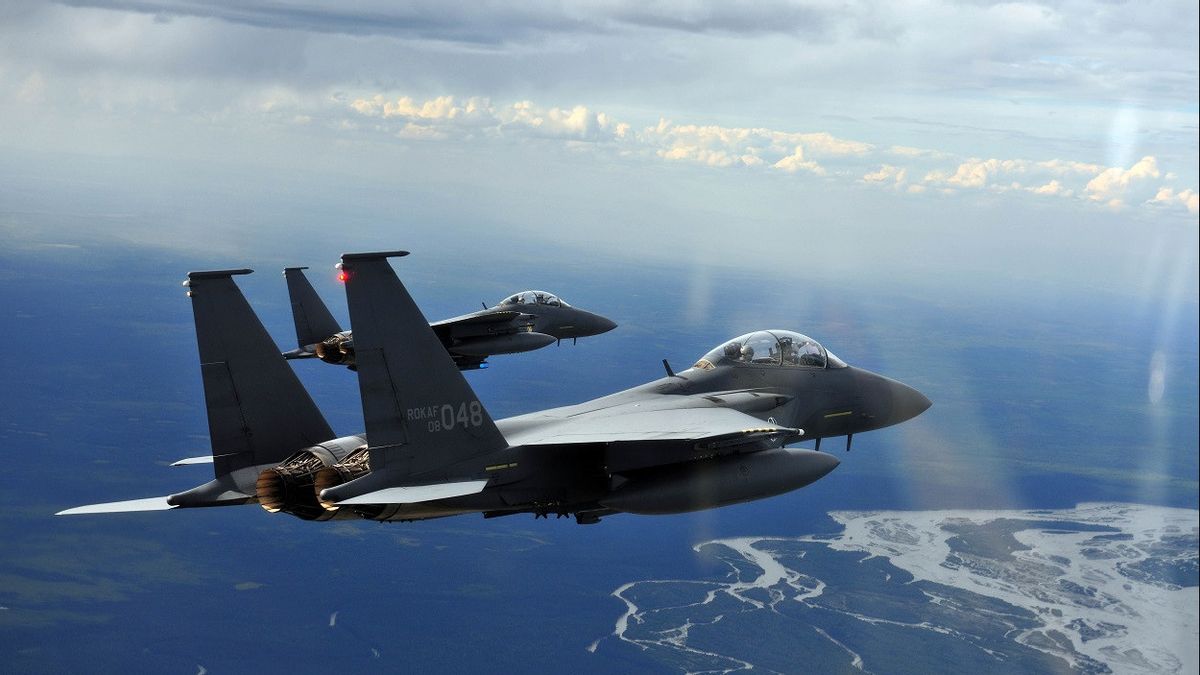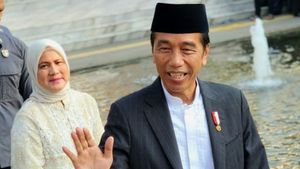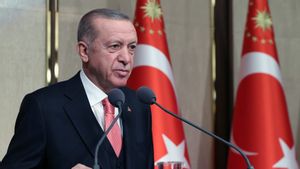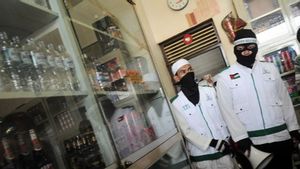JAKARTA - South Korea deployed its military force, in response to North Korea's mid-range ballistic missile launch (IRBM) on Tuesday morning, dropping two precision bombs on targets in the Western Sea.
According to South Korea's Joint Chiefs of Staff (JCS), four Air Force F-15K fighters of the Republic of Korea and four US Air Force F-16 fighters participated in joint exercises on Tuesday afternoon.
In the exercise, South Korea's F-15K dropped the Joint Direct Direct Attack Munition (JDAM) bomb on target on the uninhabited island of Jikdo, about 50 kilometers from Gunsan, North Jeolla Province.
"Joint flights and precision strike exercises show South Korea and the US are committed to responding decisively to any threat from North Korea, having the extraordinary ability to strike sources of provocation appropriately," the JCS said in a statement.
JDAM is a precision bomb made from an upgraded directional conventional bomb with a guide system. It is used on targets that require extra accuracy, such as long-range artillery placed inside a cave or bunker.
Airstrike drills were carried out after JCS detected a medium-range ballistic missile (IRBM) launched at 7:23 a.m. from Mupyong-ri in North Jagang Province.
The missile flew about 4,500 kilometers over Japan at a maximum altitude of 970 kilometers and a speed of Mach 17. Given the trajectory, speed and launch site, experts say the missile could be the IRBM Hwasong-12, which North Korea shot on January 30.
South Korean President Yoon Suk-yeol lashed out at the launch, saying Pyongyang's "dangerous nuclear provocation" would face a firm response from the international community.
"As you can see, North Korea fired a medium-range missile with a distance of 4,000 kilometers above Japan," Yoon told reporters as he entered the presidential office in Yongsan District, Seoul.
"As I stated earlier on October 1 Armed Forces Day, this reckless nuclear provocation will ultimately face serious consequences from our military, allied forces, and the international community," said President Yoon.
North Korea has launched eight ballistic missiles since September 25. Meanwhile, today's launch is Pyongyang's first time firing missiles at Japan since September 2017.
Separately, experts interpret Tuesday's launch as the start of the seventh nuclear weapons test.
"Today's launch was seen as an attempt towards the seventh nuclear trial of the regime, given the regime did so five years ago," said Go Myong-hyun, a researcher at the Asan Institute for Policy Studies.
In 2017, North Korea launched the Hwasong-12 missile over Japan on August 29 and September 15. Among the launches, Pyongyang conducted its sixth nuclear weapons test on September 3.
"There may be another test for the intercontinental ballistic missile before the seventh nuclear test. And it is likely that North Korea will carry out a seventh test before the United States' part-time election in November.
The English, Chinese, Japanese, Arabic, and French versions are automatically generated by the AI. So there may still be inaccuracies in translating, please always see Indonesian as our main language. (system supported by DigitalSiber.id)













